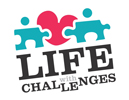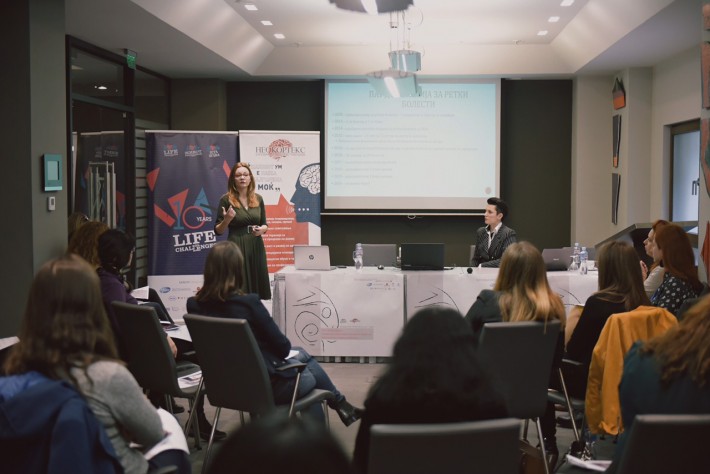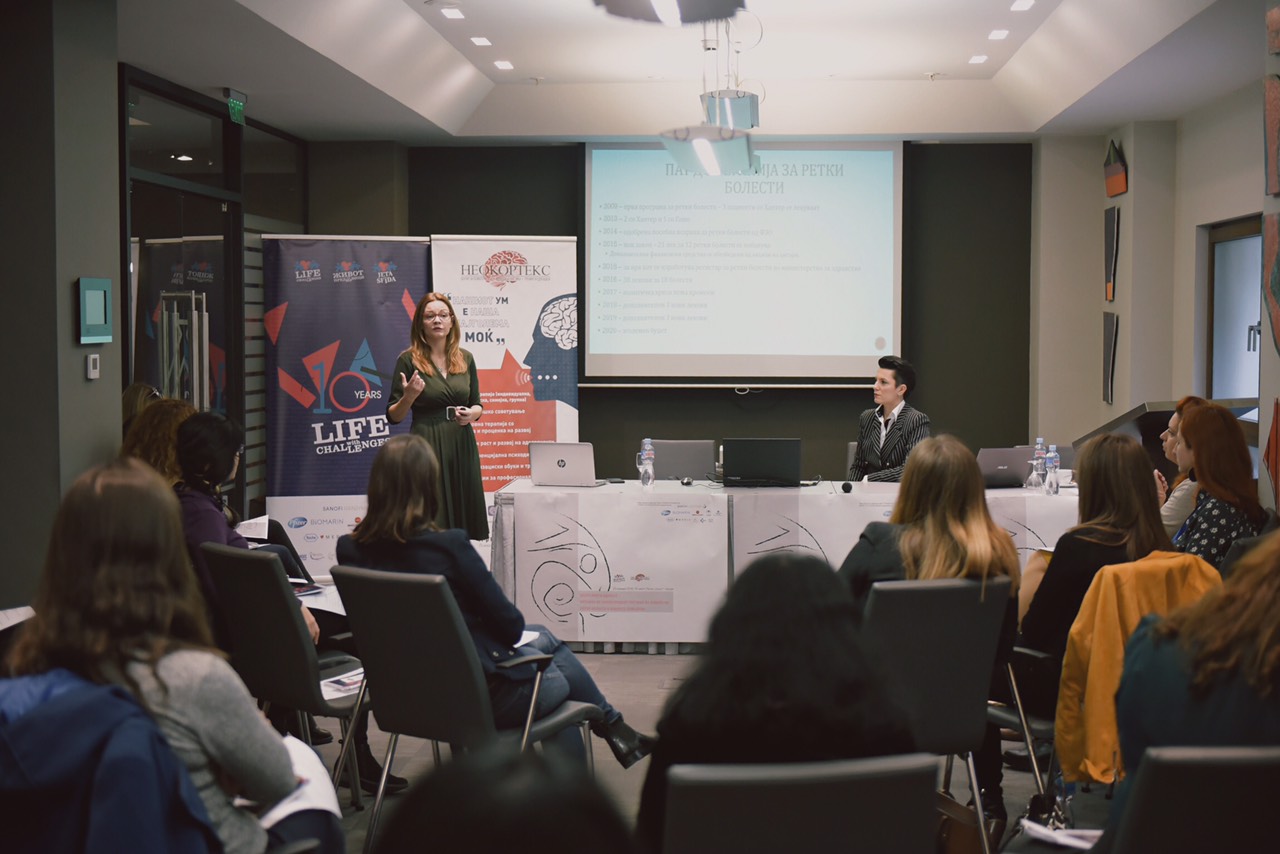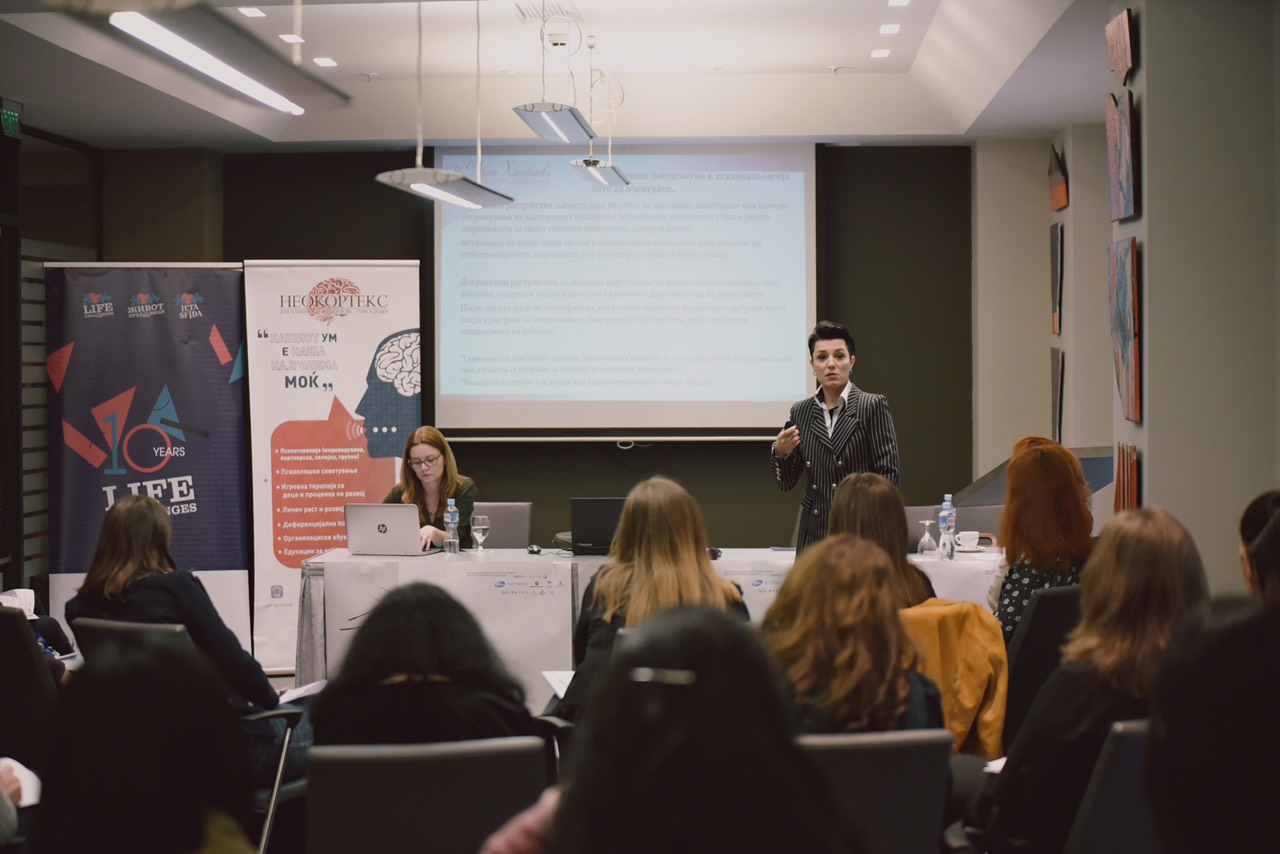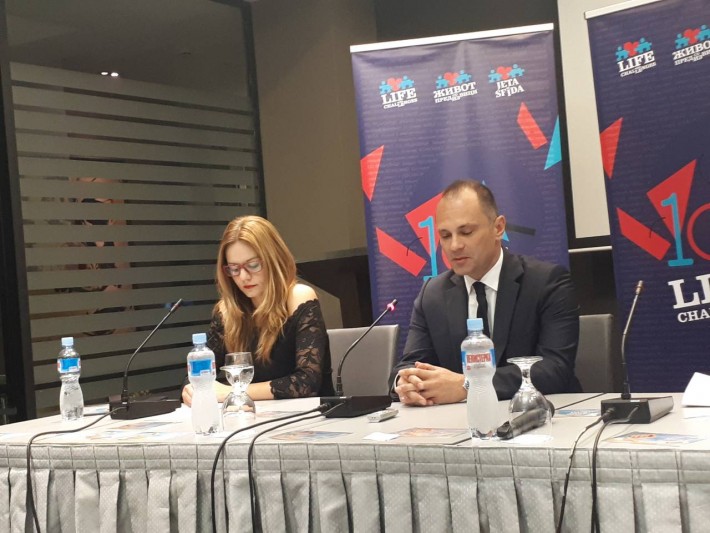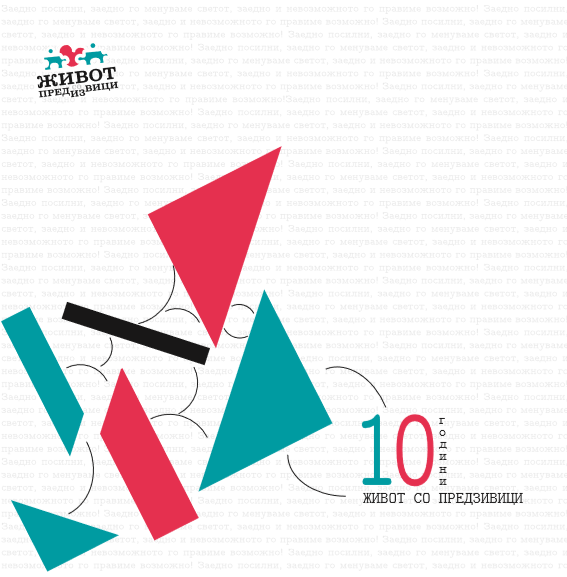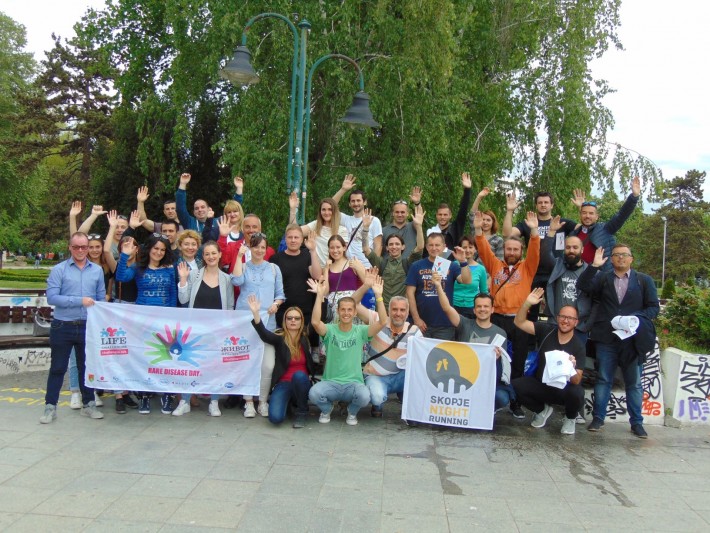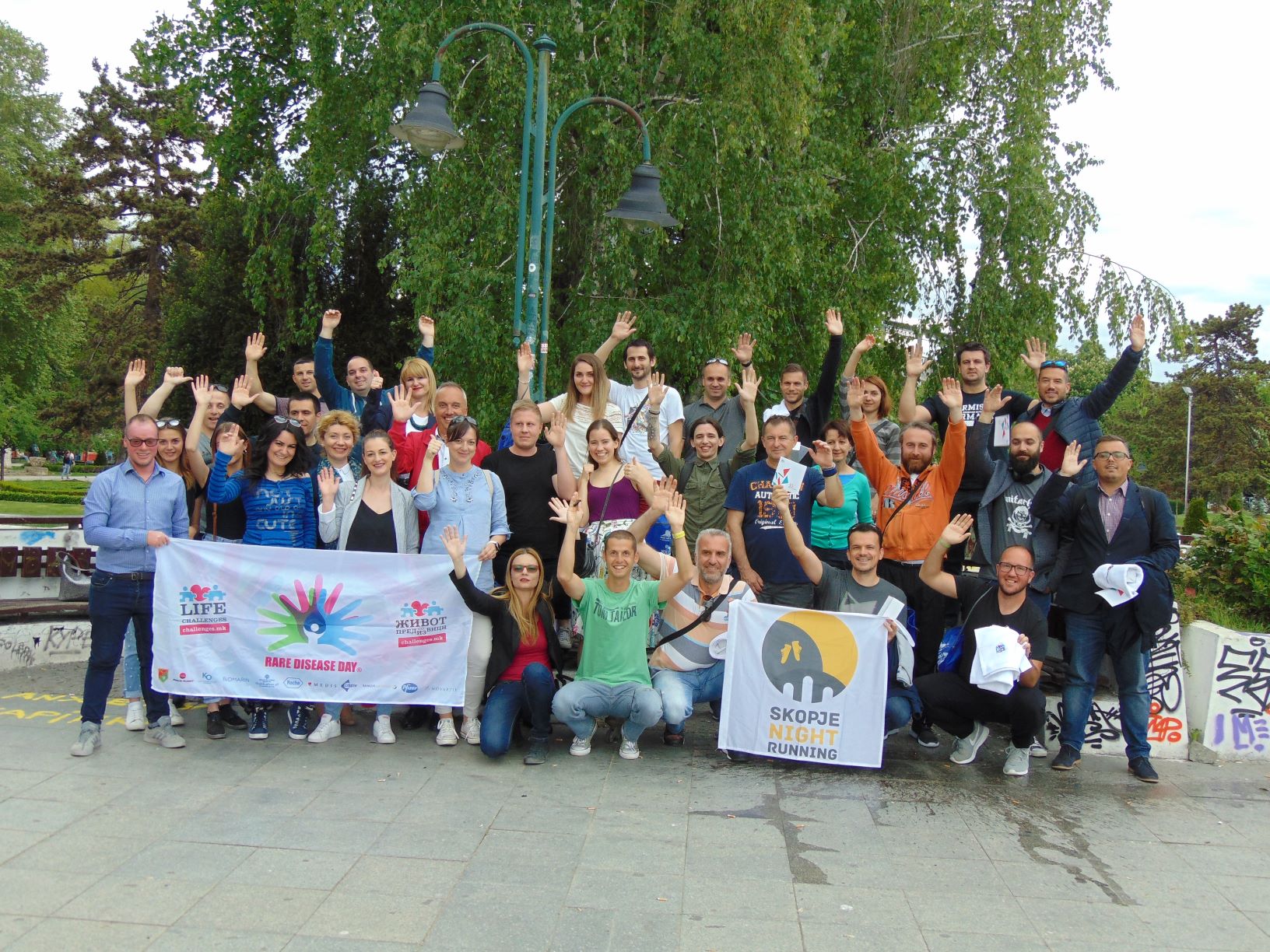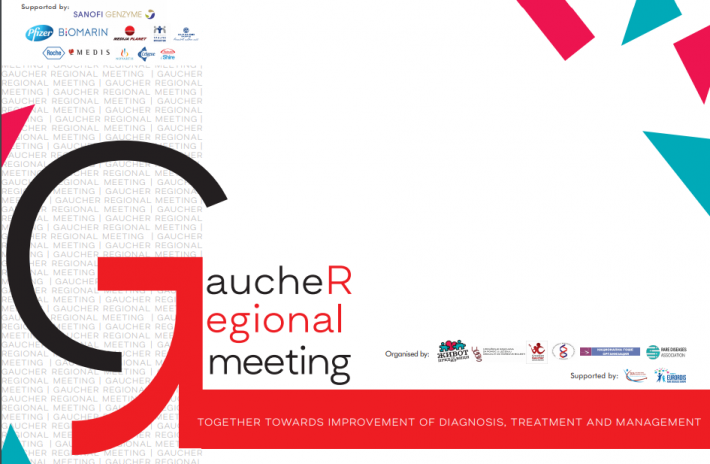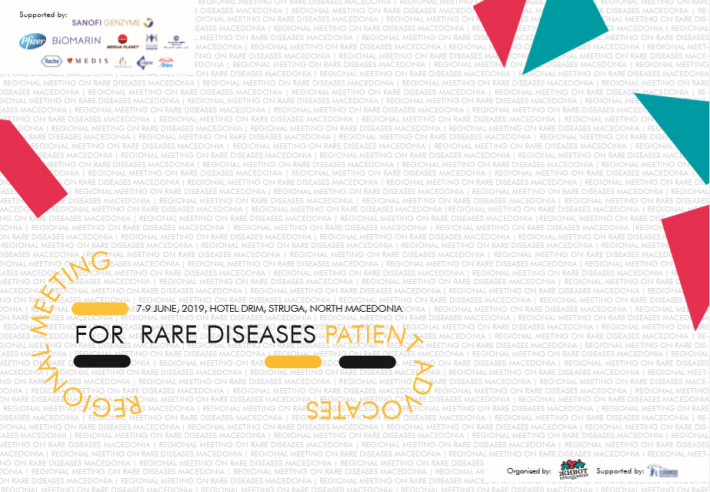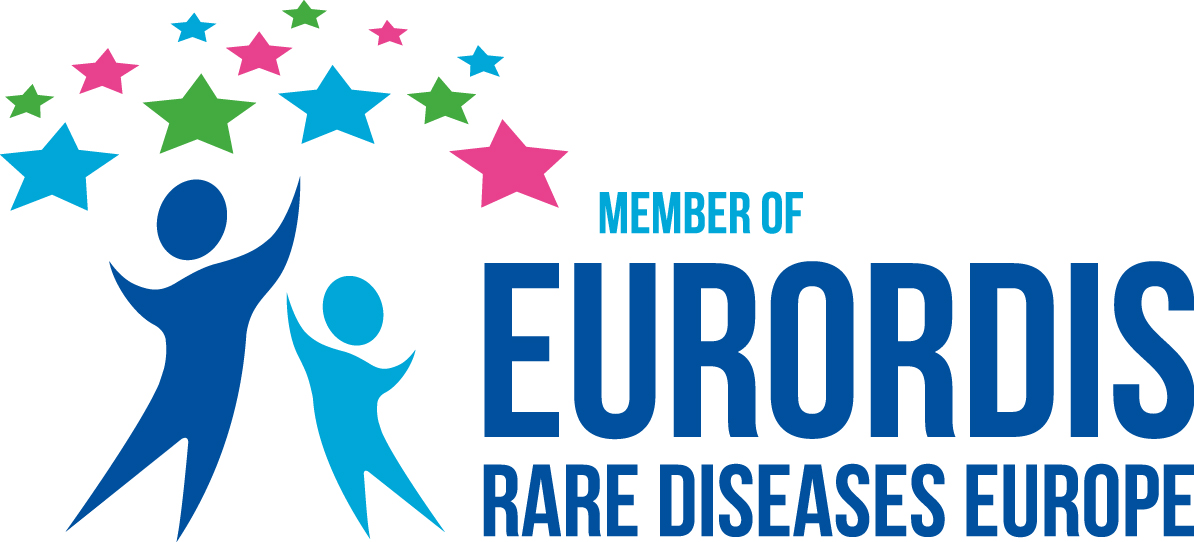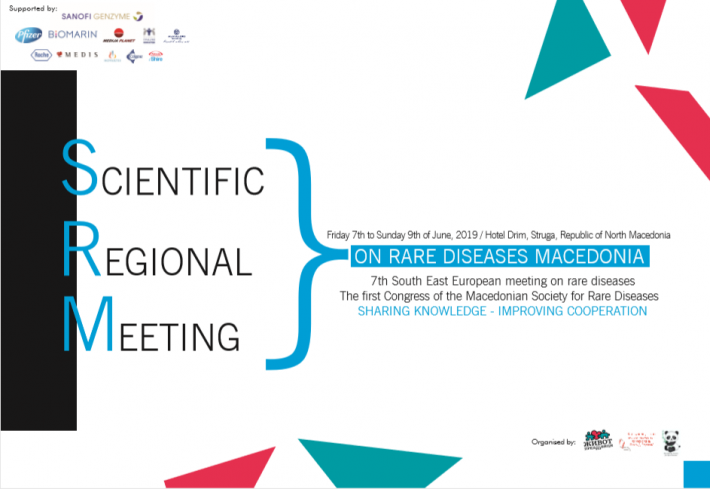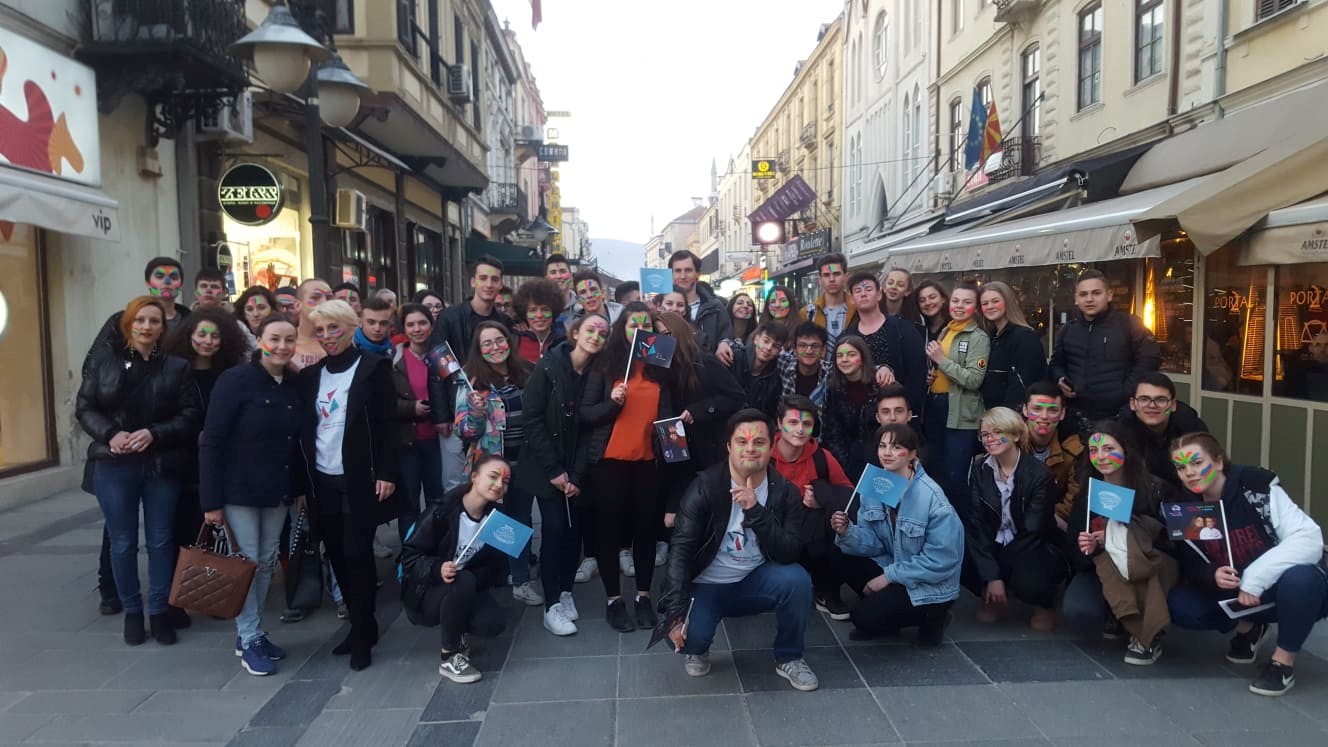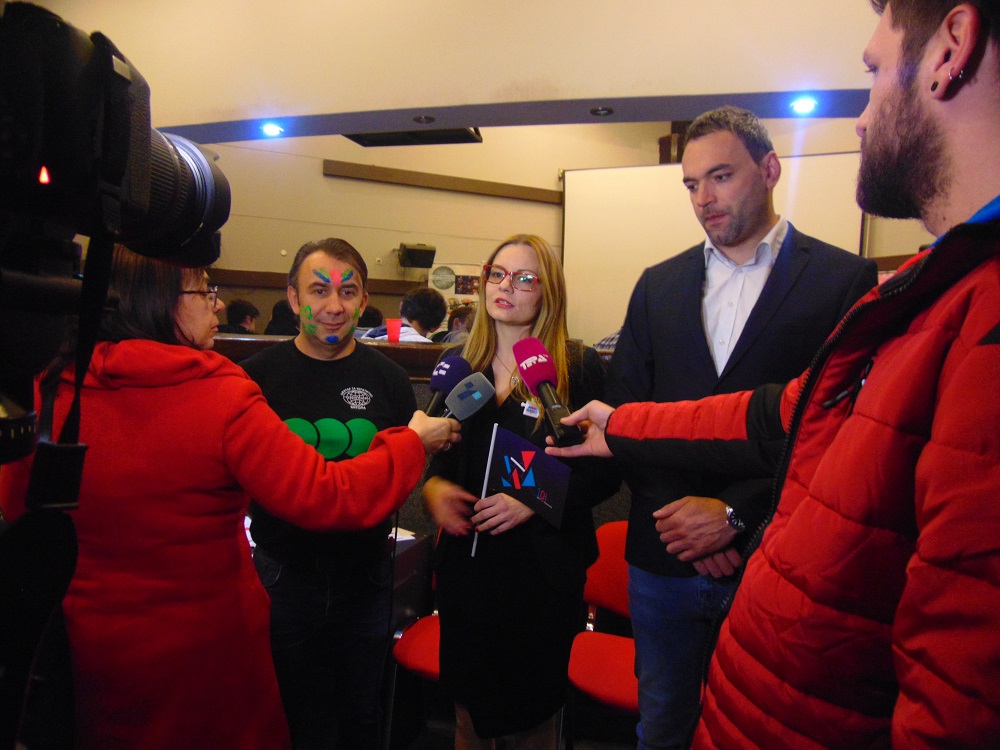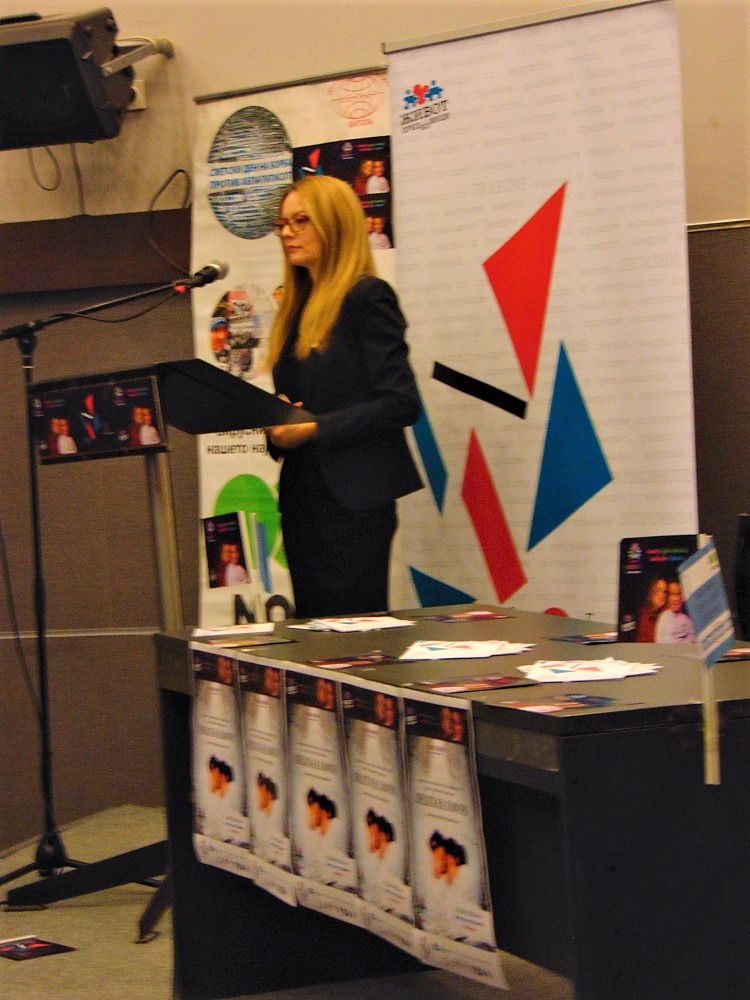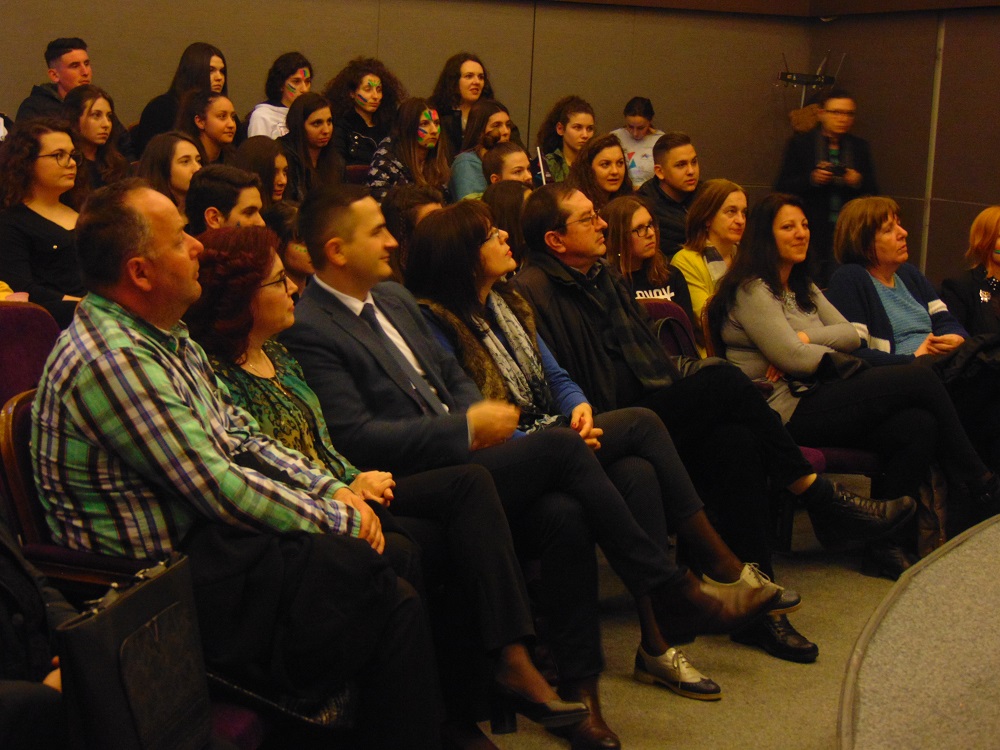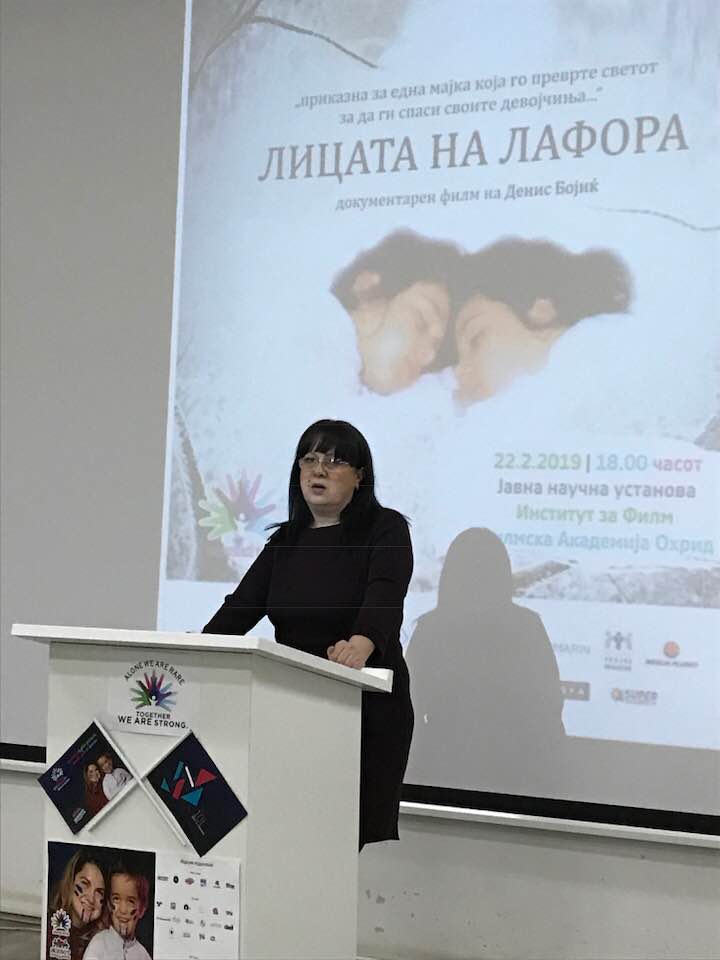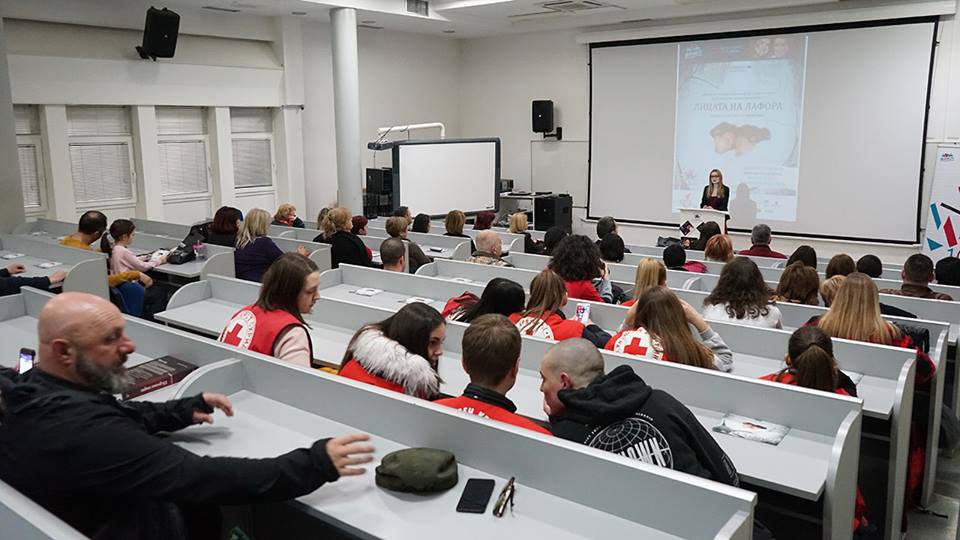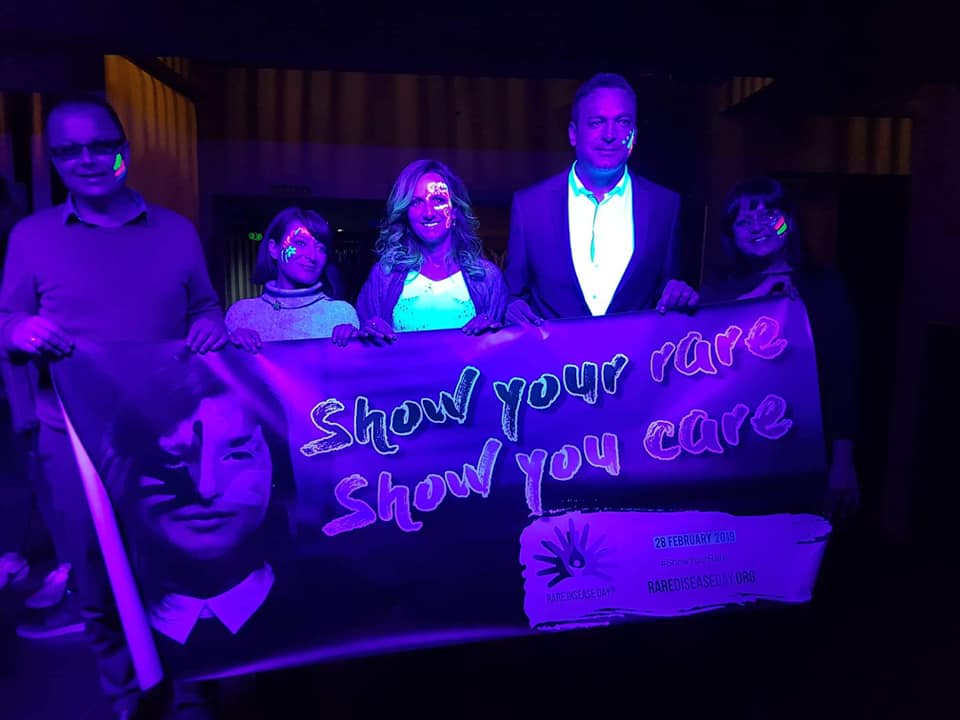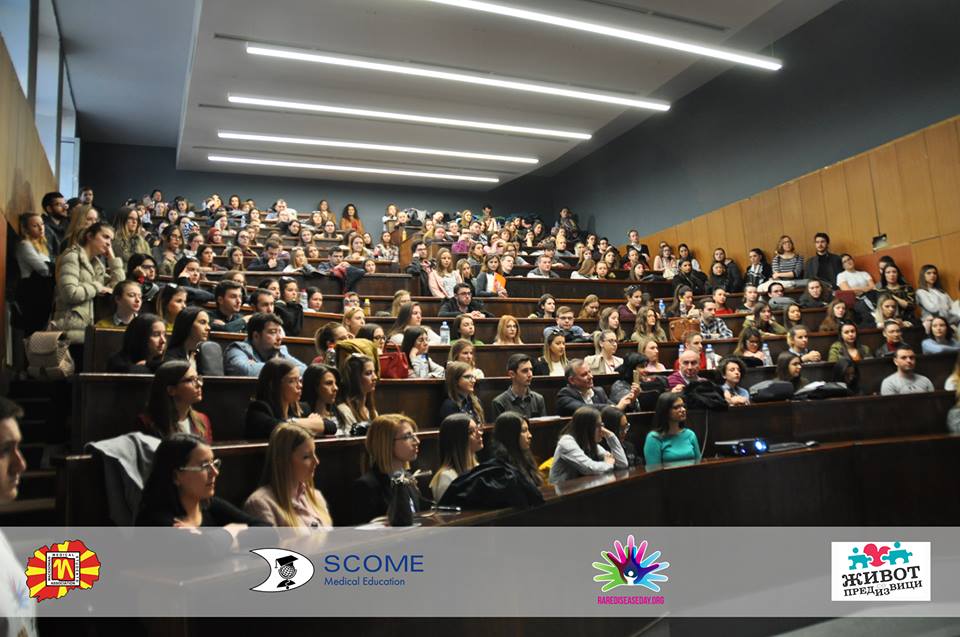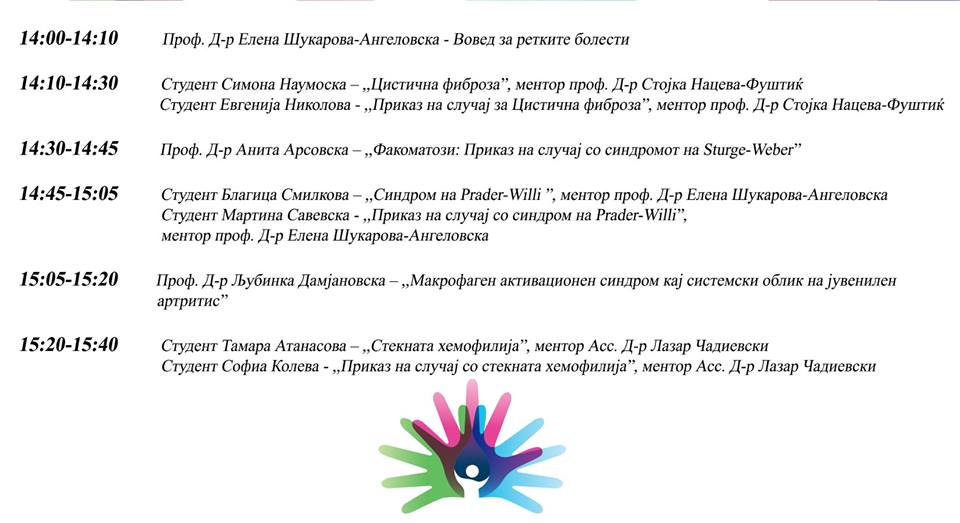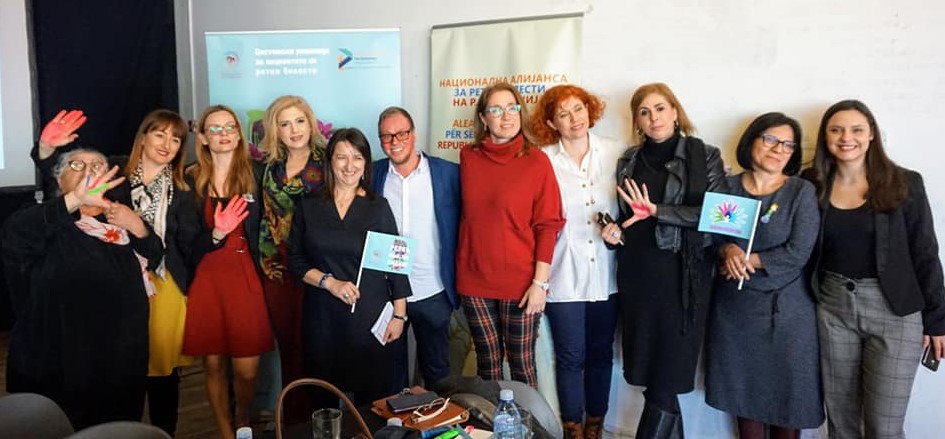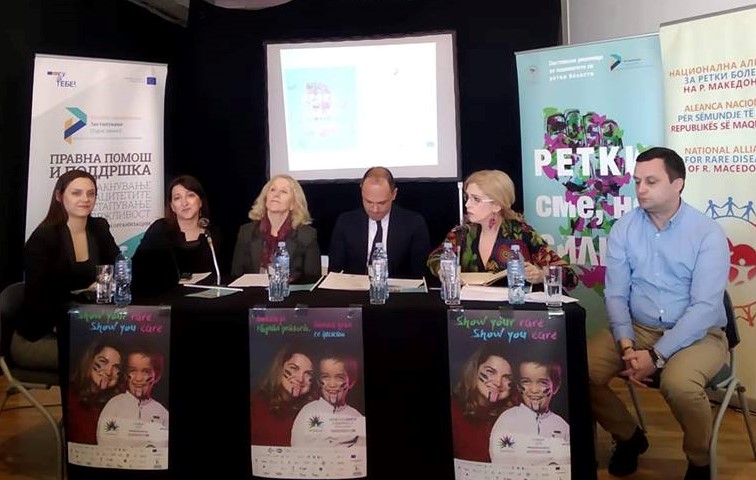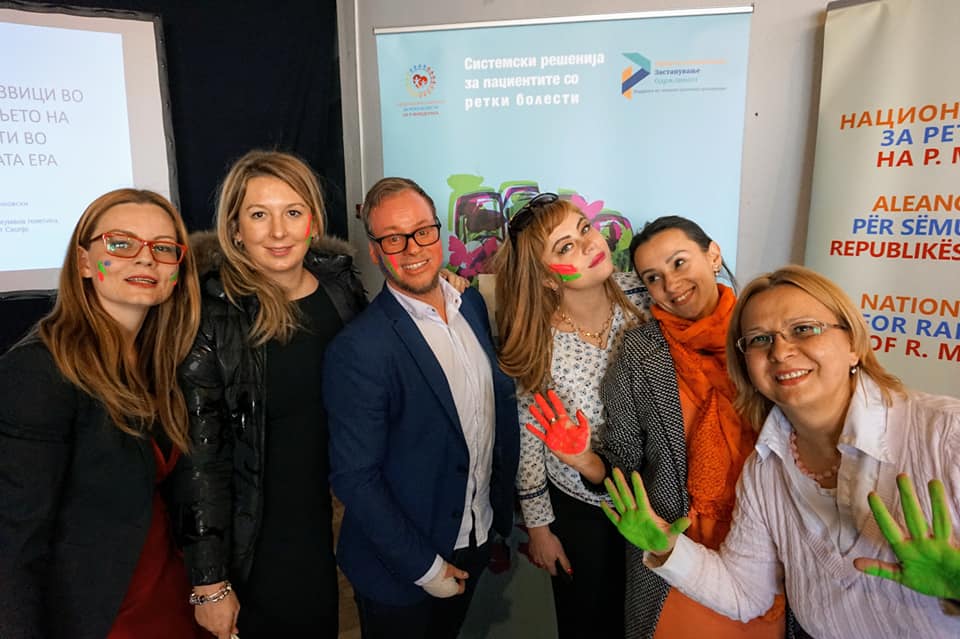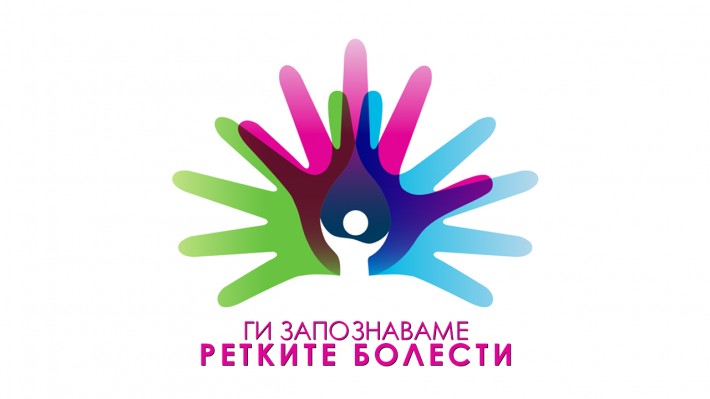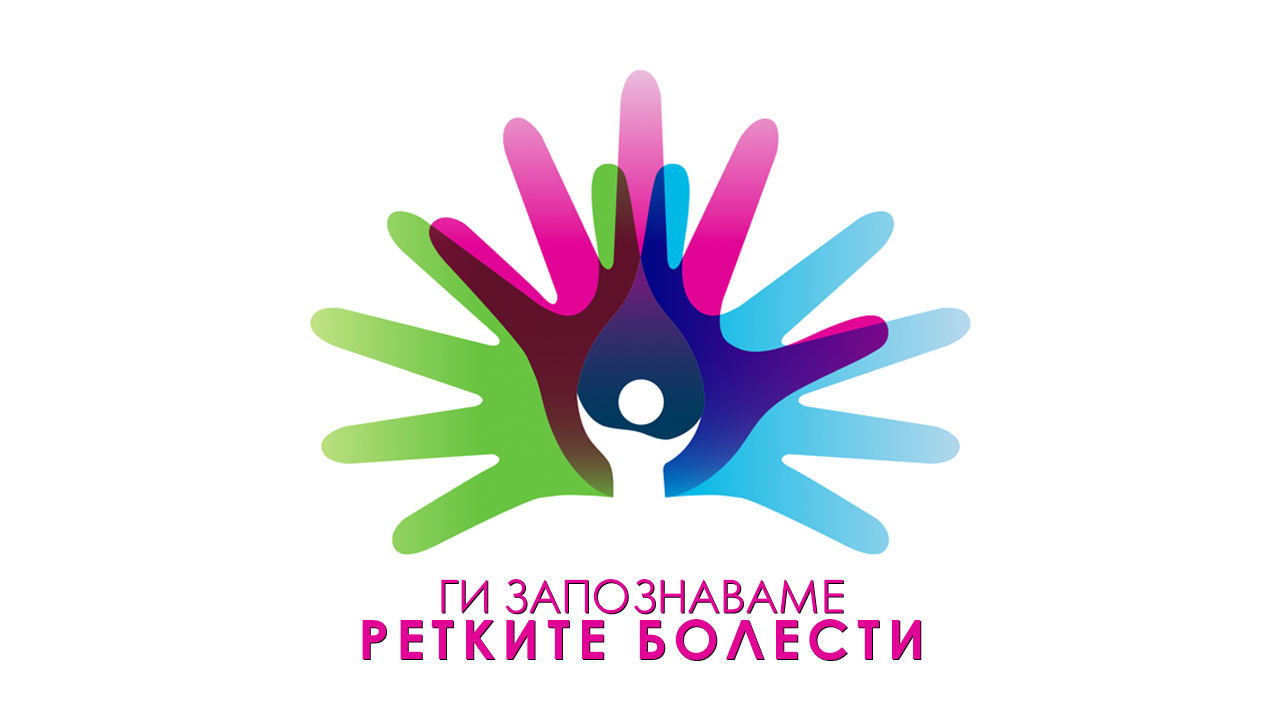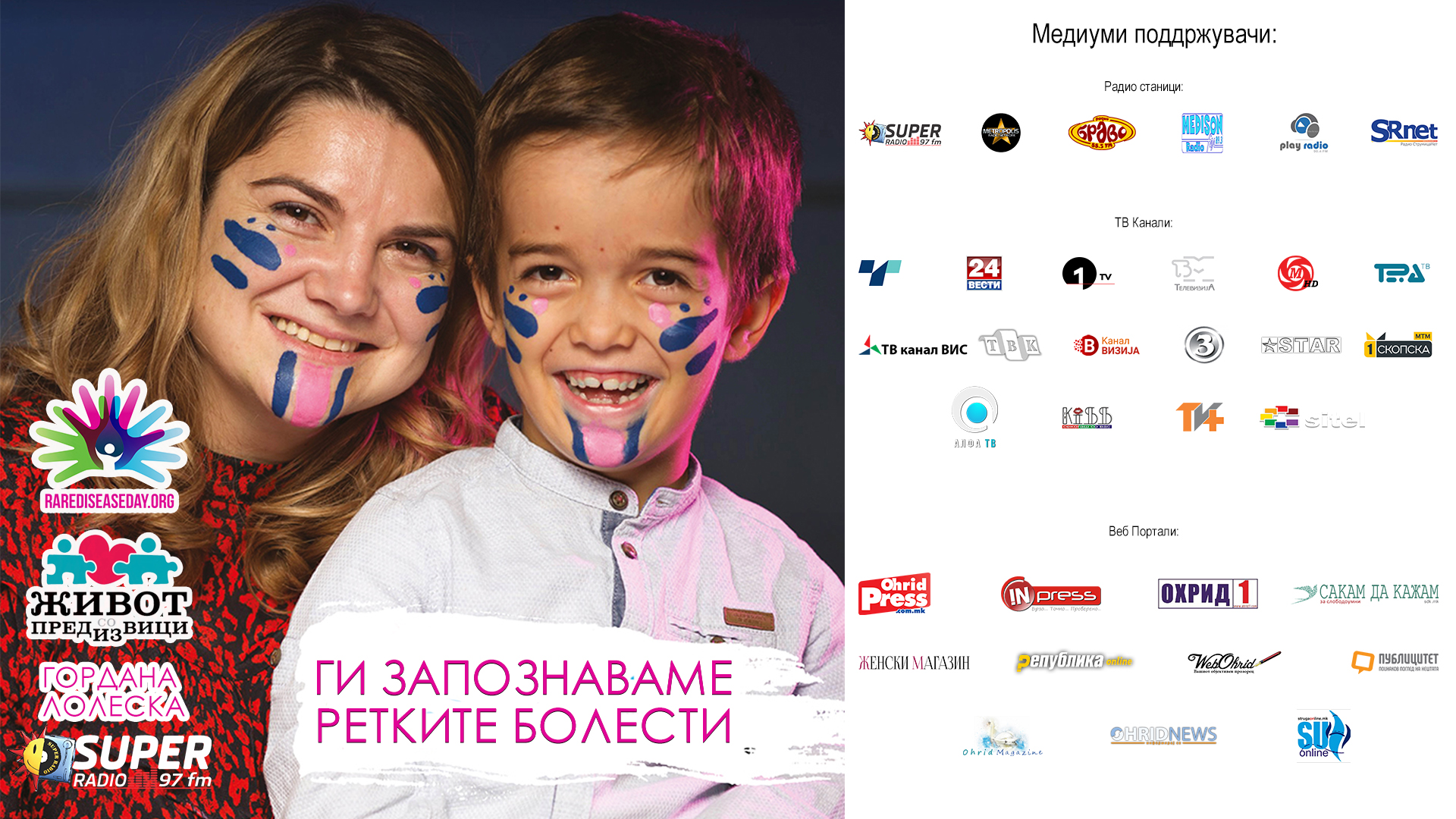Интернационален ден на болест на Гоше
Здружението на граѓани за ретки болести „Живот со Предизвици“ го одбележа 1 октомври, Интернационалниот ден на Гоше, со прес конференција во 08.30 часот, на 1 октомври, вторник во хотел Солун.
За прв пат овој ден е одбележан во 2014 година и оттогаш сите организациии членки на Интернационалната Гоше Алијанса од целиот свет го одбележуваат овој ден.
Изјава – Венко Филипче, Министер за Здравство на Република Северна Македонија:
„Уште на почеток соработуваме со пациентските организации и редовно имаме состанови бидејќи сме свесни дека е потребна соработка за да се изнајдат соодветни решенија за предизвиците и проблемите со кои се соочуваат пациентите со ретки болести. Затоа ги вклучуваме и во работата на комисијата за ретки болести. Започнавме со усовршување на регистарот и со зголемување на финансиите во програмата за ретки болести. Оваа година буџетот е три пати поголем од тоа што беше во 2015 година.
За Интернационалниот ден на Гоше објавуваме дека конечно од пред десет дена е достапна и орална терапија за пациентите со болест на Гоше. До сега беа достапни две инфузиони терапии. Со ова се подобрува квалитетот на живот на пациентите и нивните семејства. новите лекови значат подобра иднина и ќе се трудиме како министерство да бидеме во чекор со иднината. Во 2018 имавме нови лекови во проргама и сега во 2019 воведовме нови лекови. Секоја година е шанса за подобар живот. Се зголемуваат финансиите затоа што има нови лекови и нови пациенти.“
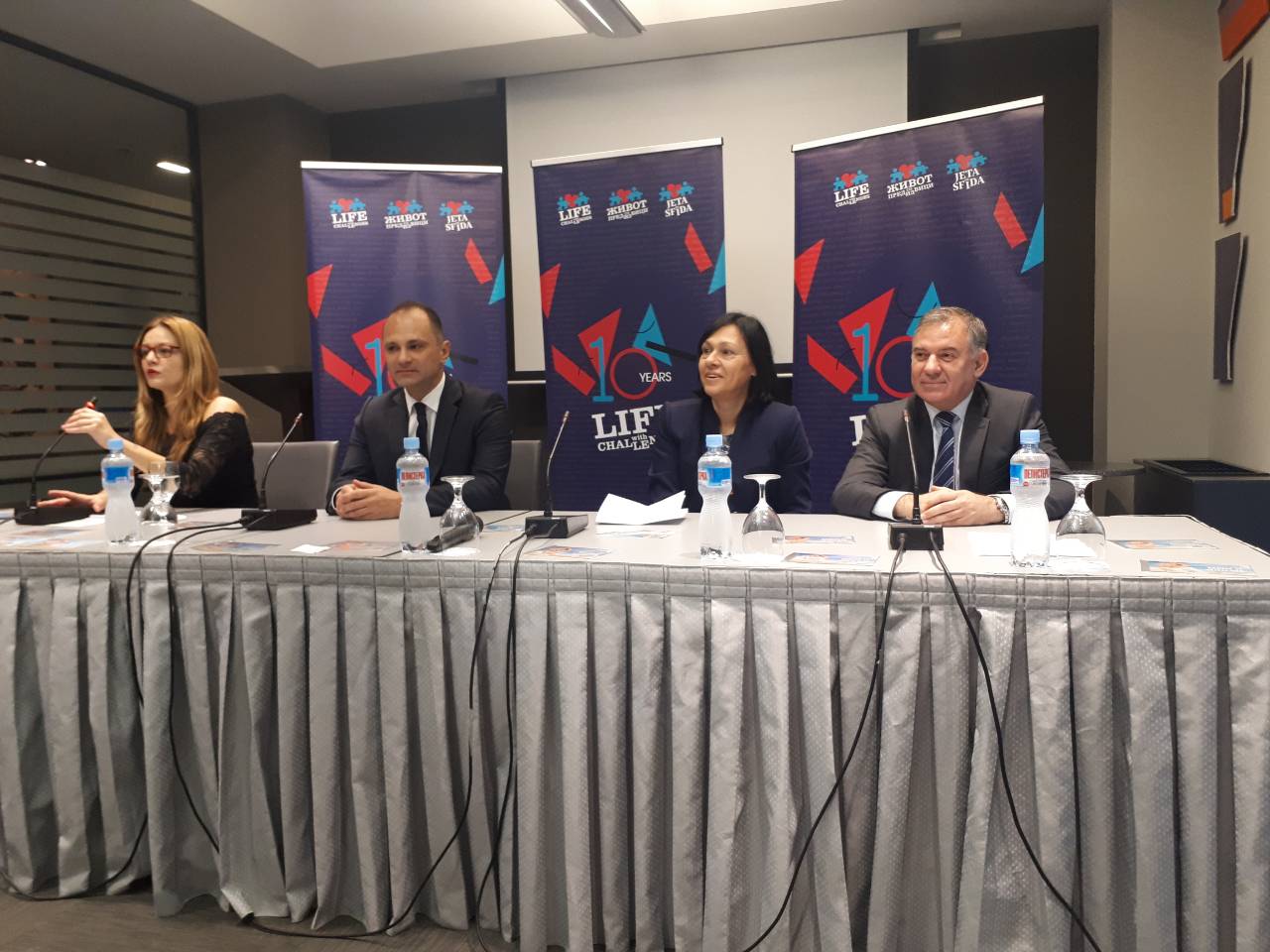
Изјава – Весна Алексовска, претседател на здружението, пациент со болест на Гоше:
Секоја година забележуваме напредок во однос на третман, здравствени и социјални услуги за пациентите со ретки болести, и ги истакнуваме и проблемите кои дополнително треба да се решаваат. Како здружение сме задоволни што имаме отворена врата до институциите за разгледување на проблемите на семејствата и барање решение за истите. Иако некогаш работите се движат бавно, сепак одат во добра насока.
Во однос на пациентите со Гоше моменално во Република Сееверна Македонија има околу 15 пациенти со тип 1 Гоше, нема регистрирани пациенти со тип 2 и 3. До минатата година пациентите беа на ензимско заменска терапија имиглуцераза, а од минатата година стана достапна и втора ензимско заменска терапија – талиглуцераза. Оваа година повторно имаме новини во терапија кај болест на Гоше. На двајца пациенти им беше одобрена орална терапија, која минатата недела ја подингаа од Клиниката за хематологија во Скопје. Оваа терапија е супстрат редуктивна, и е одобрена како прволиниска терапија кај пациенти со Гоше во Европа и во Америка.
За пациентите ова значи дека неме веќе на две недели да одат на клиника за да примаат инфузија, што значи ќе им се намалат посетите на клиника од 2-3 пати месечно, на еднаш на два месеци. Нема да мораат да земаат слободен ден од работа за да одат на инфузија, и нивниот квалитет на живот ќе се подобри значително. Понатамошно се надеваме дека в година и за други пациенти ќе се одобри орална терапија, а за тие што се на инфузија се надеваме дека ќе се одобри да ја примаат терапијата во градот / селото, во кое живеат со цел да не мора да патуваат во Скопје.
Дијагнозата за болест на Гоше во нашата земја се добива најчесто на Детска клиника (оддел хематологија, оддел метаболизам и доенче, оддел гастроентеропатологија) и на Клиника за хематологија во Скопје преку испитувања на крв, коскена срцевина и мерење на слезина и црн дроб преку ехо или магнетна резонанца. Генетските анализи се вршат во МАНУ за потврда на дијагнозата. Во МАНУ се врши и тестирање на членови на семејството за превенција на болеста.
Ќе продолжиме со едукативни активности и активностиза подигнување на јавната свест, бидејќи како кај оваа ретка болест така и кај другите е важно да се добие рана дијагноза и да се има ран пристап до терапијаи контрола на болеста за да се има квалитетен живот.
Пациентите со тип 1 Гоше каде рано е откриена болеста имаат сосем нормален живот ако се стават на терапија. Можат да работат, да учат и да имаат семејство.“
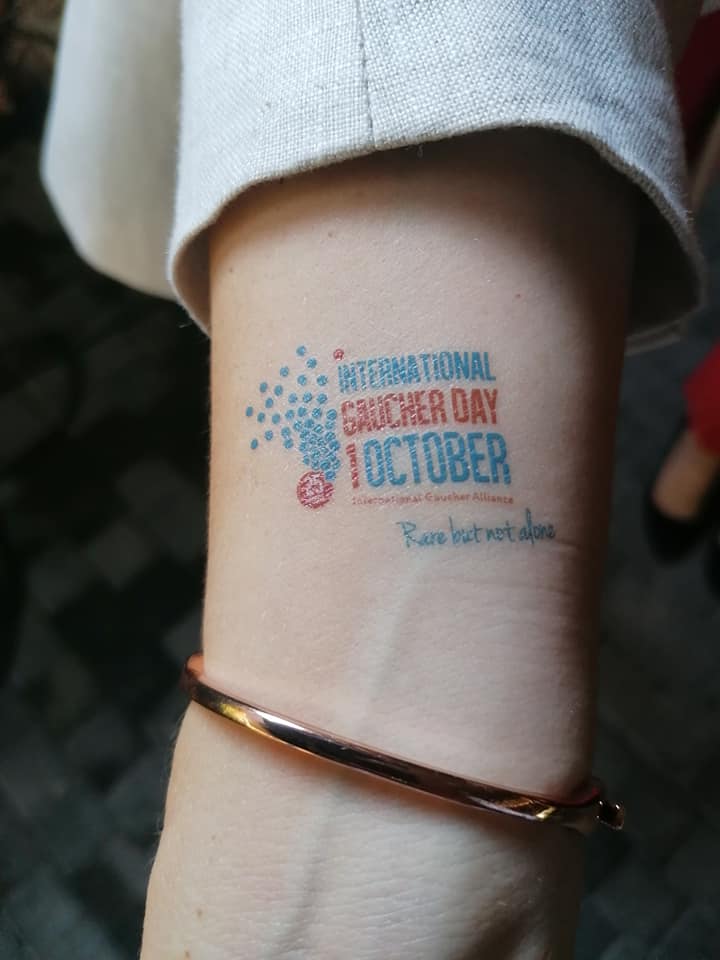

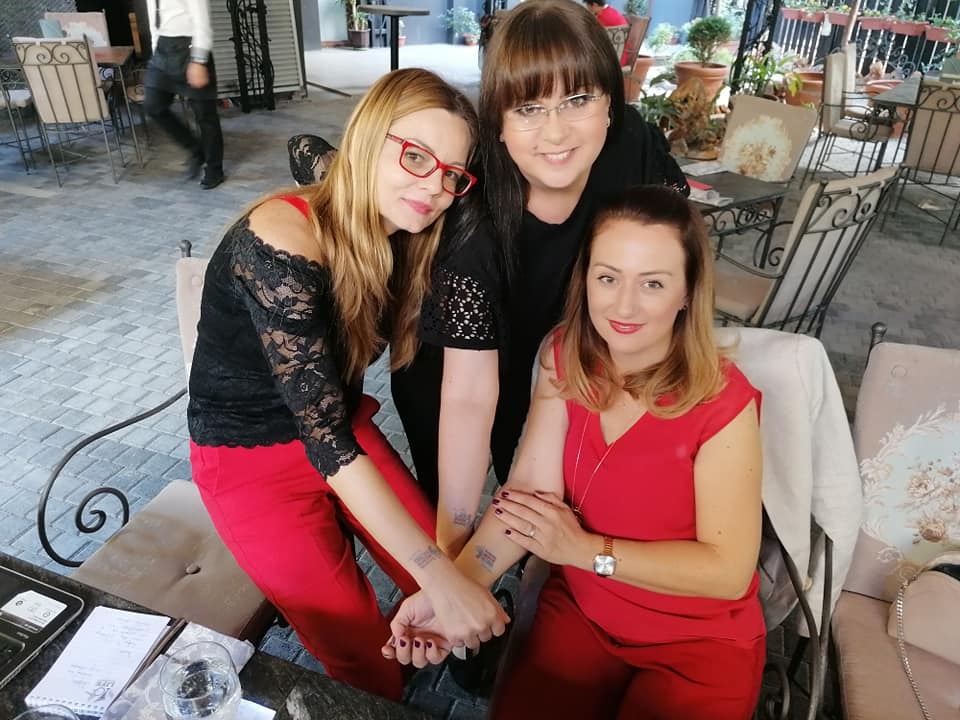
Изјава – Д-р Дијана Плашеска Каранфилска, Генетски инжинеринг, МАНУ:
„Во МАНУ работиме генетски анализи на пациенти и семејства со ретки болести меѓу кои и за Гоше. Сите пациенти имаат генетски анализи и ги тестираме и членовите на семејствата со цел да се види кои се носители, а воедно се тестираат и за Паркинсова болест бидејќи истражувањата во светот покажуваат поврзаност меѓу болеста Гоше и Паркинсонова болест, но и поврзаност со други почести болести. Од нашите истражувања на популација од 700 луѓе се покажа дека 1 на 100 пациенти е носител на болест на Гоше тип 1. Тоа покажува дека веројатно има и 200 заболени во нашата држава кои не се дијагностицирани или се асимптоматски (односно имаат нормален живот и не се манифестира кај нив болеста).
Ова покажува дека треба повеќе да се работи на едукација и дијагноза за ретките болести за да може навремено и рано да се дијагностицираат и навремено да се започне со терапија за да имат поквалитетен живот.“
Изјава – Проф. Д-р Злате Стојаноски, ЈЗУ Универзитетска Клиника Хематологија Скопје:
„Добро е што постојат пациентски организации кои работат на подигнување на јавната свест и кои се борат за подобар третман на ретки болести. Кога прв пат се сретнав со Болест на Гоше беше 1995 година и тогаш не беше достапна терапија кај нас. Пациентите беа оставени сами на себе и можевме само да им помогнеме да ги олеснат симптомите. Од 2010 за критичните пациенти беше обезбедена донација од Гензиме, Санофи Авентис, а прв пат од државата инфузионата терапија беше покриена од 2015 година. Во 2018 година добивме и уште една инфузиона терапија и конечно 2019 е достапна и оралната терапија на која веќе имаме еден пациент преку клиничка студија.
За третман на Гоше е потребен мултидисциплинарен пристап и како клиника го прифативме овој предизвик да се грижиме за овие семејства.“

Општо за проблеми и предизвици за пациенти со ретки болести:
Проблем кој сакаме да го истакнеме е скринингот за фенилкетонурија кој е потребен да се врши на цела популација веднаш после раѓање со цел да може овие пациенти да имаат нормален живот. Доколку не се открие веднаш од оваа болест настануваат физички и ментални дисабилитети кои не може да се вратат назад со терапија. Терапијата и храната е достапна во Македонија, единствено останува да се воведе и скрининг. Поради немање на скрининг се дијагностицираат деца кои веќе имаат 3 месеци или 2 години и тогаш веќе има настаната штета која не може да се поправи.
Исто така останува како проблем набавката на лекови, и оваа година пациенти чекаа долго време за да заврши тендер и соодветно да ги примат лековите кои им се потребни. Од дијагноза до терапија дел од пациентите чекаа и повеќе од година и половина. За ова мора да се најде решение идната година да не се повтори.
Секако останува и важноста на добивање на дијагноза, за што започна рефундација од ФЗО во февруари, 2019 и очекуваме да се зголемат финансиските средства за генетски анализи бидејќи се покажа уште во мај дека не се одвоени доволно средства за да се покријат сите пациенти и нивните семејства за кои се потребни овие анализи. Во комуникација со МАНУ, ФЗО и МЗ се надеваме што побрзо да се разрешат финансиските пречки за добивање на дијагноза во Македонија и надвор од неа.
Воедно работиме кон подобра соработка помеѓу специјалисти доктори за мултидисциплинарен пристап кон лекување и контрола на болеста и за побрзо добивање на дијагноза. Само заедно може да направиме подобро општество за семејствата кои се соочуваат со одредена ретка болест. За дел постојат лекови, но од 8000 ретки болести само за 5% постои некаква терапија. Затоа е важно да се подобри квалитетот на живот на секој можен начин.
Информации за Болеста на Гоше:
Оваа болест е именувана според Филип Чарлс Гоше, кој во 1882 година како студент ја откри болеста кај 32 годишна жена која имала зголемена слезина. Вотоа време се сметало дека овааа болест е некој вид на рак на слезината и Филип Ч. Гоше ги објави своите наоди во докторатот. Дури во 1965 година беше разјаснета биохемиската природа на болеста на Гоше. Развојот на ензимско-заменската терапијаво 1991 година, понуди живото-спасувачки третман за многу Гоше пациенти, но уште има непресретнати медицински потреби и во многу земји пациентите не можат да добијат терапија, бидејќи нивните влади немаат програми за рефундација за да ги поддржат пациентите на кои им треба третман.
Пациентските организации во целиот свет го поддржуваат Интернационалниот Ден на Гоше за да:
- Ја зголемат свеста за постоењето на болеста на Гоше и знаците и симптомите кои доаѓаат со оваа болест со цел докторите порано да ја дијагностицираат оваа болест, бидејќи во друг случај често пациентите добиваат погрешна дијагноза и со тоа и погрешен третман.
- Да ја информираат заедницата за постоењето на можните терапии за болест на Гоше
- За да го стават фокусот на непресретнатите медицински потреби и особено на недостатокотна третман за пациенти со болест на Гоше тип 3 кои имаат невролошки проблеми
- Да се приотизира трагедијата на безбројни пациенти во многу страни од светот кои не се во можност да добијат терапија која ќе им го спаси животот
- Да се охрабри понатамошно истражување на болест на Гоше поврзано со Паркинсон, мултипен миелом, миелодиспластичен синдром, и многу други состојби.
Низ 50 земји членки на Интернационалната Гоше Алијанса, пациенти, семејства, доктори, научници и здравствени работници ќе го одбележат денот на Гоше со разни настани и активности користејќи ги промотивните материјали обезбедени од ИГА преку донации од спонзорите.
Членови на Гоше заедницата и партнери ќе носат привремени тетоважи за да ја подигнат свеста за постоењето на болеста на Гоше.
Оваа година темата е ‘Rare Stars – Bringing hope, improving lives’ со личен фокус на оние ѕвезди кои не ги гледаме и споменуваме секојдневно, но се оние кои ги поддржуваат пациентите, семејствата и Гоше заедницата. Тоа може да биде родител, брат или сестра, пријател, застапник, доктор, сестра, истражувач и многу други кои помогнале во патот кон подобар живот за пациентите со болест на Гоше.
За време на конгресот на Европската Работна Група за Болестна Гоше во Клермонт-Феранд, Франција, беше откриена ретката ѕвезда на Интернационалата Гоше Алијанса – Џереми Мануел, почесен претседател на ИГА, во чест на неговата 25 годишна посветеност кон глобалната Гоше заедница.
Џереми Мануел, изјава:
„Голема чест е што сум избран за ретка ѕвезда на интернационалната пациентска заедница. Подигнувањето на свеста за болеста на Гоше, помагањето на пациентските групи за да стигнат до третман и охрабрувајќи истражување во однос на непресретнатите потреби на Гоше пациентите беше секогаш во фокус на нашите активности уште отакако ја формиравме ИГА. Денот на Гоше е еден прекрасен начин да ја потсетиме јавноста во однос на нашите цели. Затоа ве охрабрувам активно да се вклучите во одбележувањето на овој ден и да кажете благодарам на вашите ретки ѕвезди. За мене е привилегија да работам толку многу години во Гоше заедницата. Се надевам дека еден ден сите пациенти во светот ќе имаат пристап до терапијата која им е потребна.“
Интернационалната Гоше Алијанса е интернационална група која ги застапува интересите на Гоше пациентите низ светот.
Нашите спонзори во 2019 година се Амикус терапеутикс, Авробио, ИСУ Абксис, Орфазајм, Фајзер, Санофи Гензиме и Такеда.
Социјални медиуми:
- Facebook: @InternationalGaucherAlliance
- Twitter: @IGAgaucher
- Instagram: @igagaucher
- LinkedIn: International Gaucher Alliance
- Hashtags: #IGD2019 #RareButNotAlone #RareStars
Со ваквите активности се намалува стигматизацијата и маргинализацијата на пациентите и семејствата со ретки болести.
Благодарни сме на сите што нѐ поддржале до сега и ја продолжуваме соработката и понатаму. Се надеваме дека ќе придонесеме како здружение за иднината за луѓето со ретки болести да биде иднина која ја посакуваат.
Весна Алексовска
Претседател на Здружение на граѓани за ретки болести,
ЖИВОТ СО ПРЕДИЗВИЦИ Битола
Тел: +389 (0)70 70 54 46
Е-маил: zivotsopredizvici@gmail.com ; vesna.stojmirova@gmail.com ; info@challenges.mk
Информации за здружението:
ЖИВОТ СО ПРЕДИЗВИЦИ е член на:
